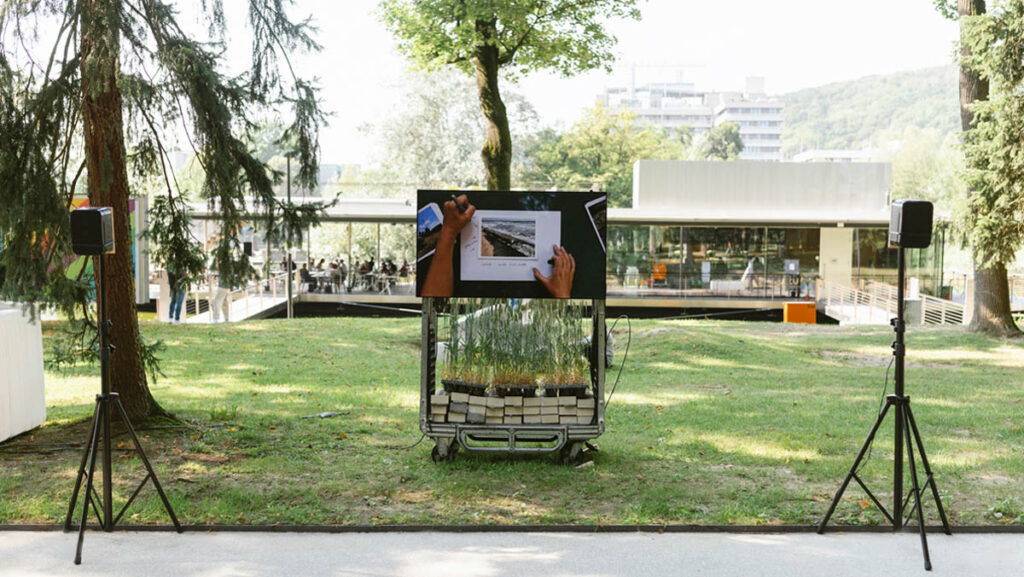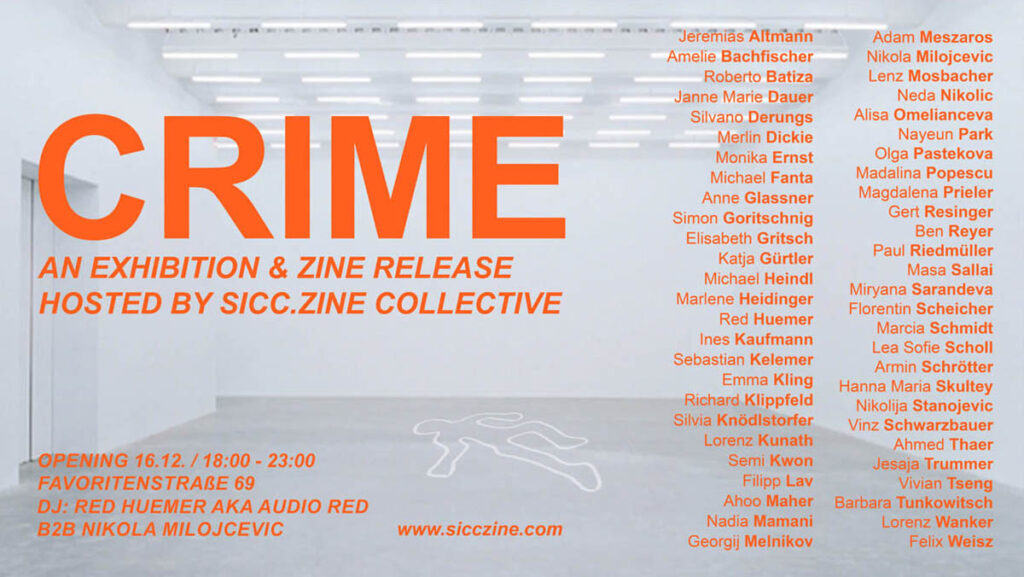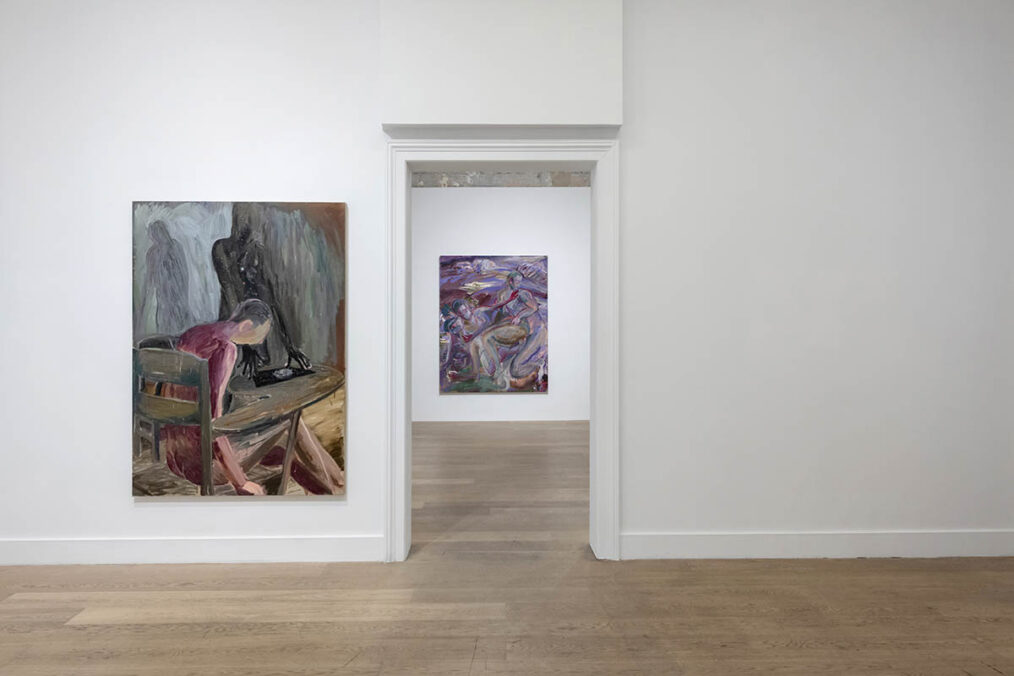
In a time when the lifespan of an image is measured in milliseconds, and its value in virtual smiles and frowns, Yilmaz ́s paintings with the critical formation of the depicted universes, as well as the attention to the factualness of these fictions, salute the brushes of such veterans of painting history. With his single, self-exposing cabaret that gets more crowded as it undresses, the artist questions where honesty should begin and end, where the art market, reality and according to which values it determines the index of sincerity.
Yılmaz’s „Auto-Portrait“, which is so uncompromisingly proud despite the figure’s occupied hands and rotten flesh, contain a productive dilemma with a depiction similar to a prehistoric deity from the Far East cultures. Emphasising the duality of being the creator of the image as well as the first to consume it, he is careful to not cause tension between the person he knows and the person he paints by keeping equal distance to the richer and poorer interests of his inner energies. The outspoken and unrestful image is a composition of the sincerity of what the heart and the mind each see.
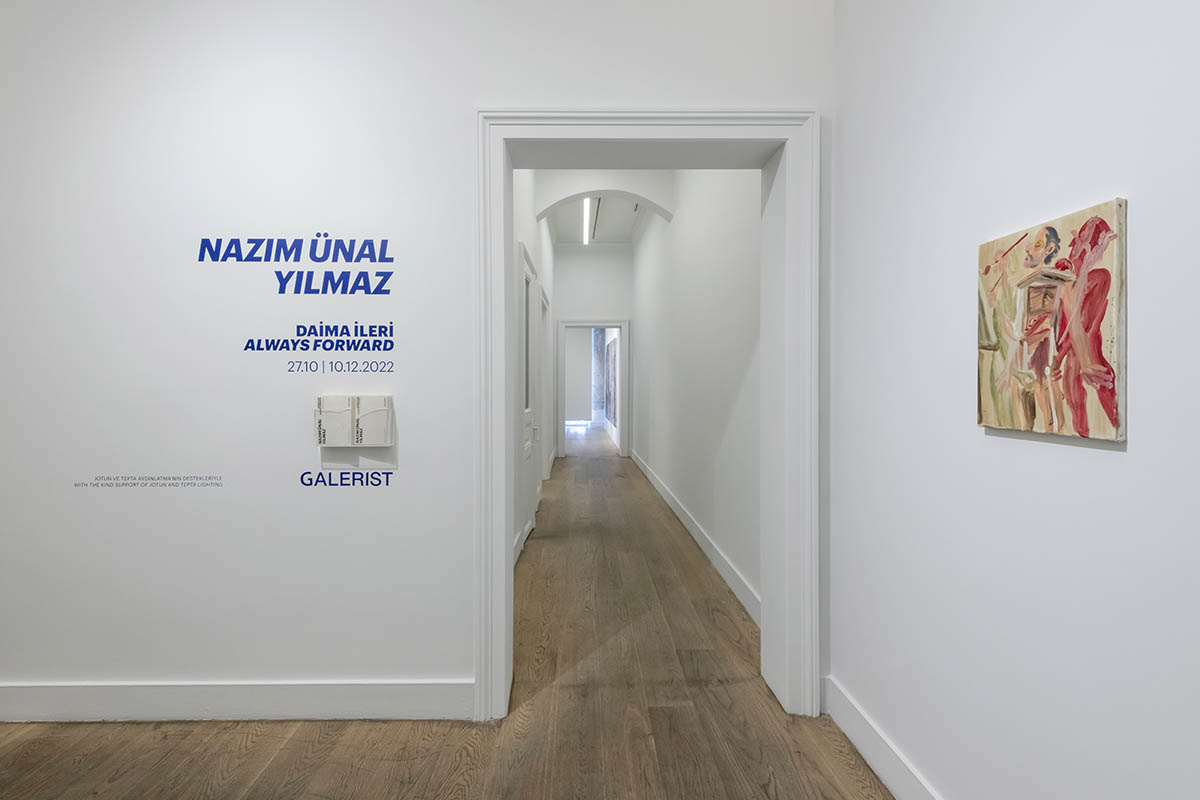
„Squid Game“, which records in a glimpse the pressure of the common interest of dreams and reality, acts as a volunteer and promotes the spectator to dance with – or rear up against – taboos and prejudices. This is a painting-dream that bears a dark yellow eroticism of the smeared sunlight on the Olympic-record-worthy torso of the classical Greco man with his flesh, muscle and potency bathed in olive oil. On it, the „horsepower“ of the freedom of fantasy is put to test at the closest possible distance. With the white action elements pouring into the painting like firecrackers, the swallowing clouds and the full moon in the background, „Squid Game“, whose dignified grandeur imbues the viewer with the privacy of the fleetingness of dreams, feels more permeable and concise than the barren images of the current times.
The visual potential of beauty offered by the canvas that has become addicted to this „Always Forward“ attitude proposes a stablemate kind of relationship with the crystallized, transparent abundance perceived in the intoxicated imagery of the painting titled „Rainbow Raid“ – indeed, the viewer may understand very late into their contemplation that they are face to face with an orgy of actions. Elements such as spontaneity, urgency, and the generous recording of the moment are the first to catch the eye among the characteristic, conceptual and technical instruments of Yılmaz’s painting. It soon becomes clear that this composition is an abstract compliment to the colours of freedom of a galloping horse that bids farewell to its groom.
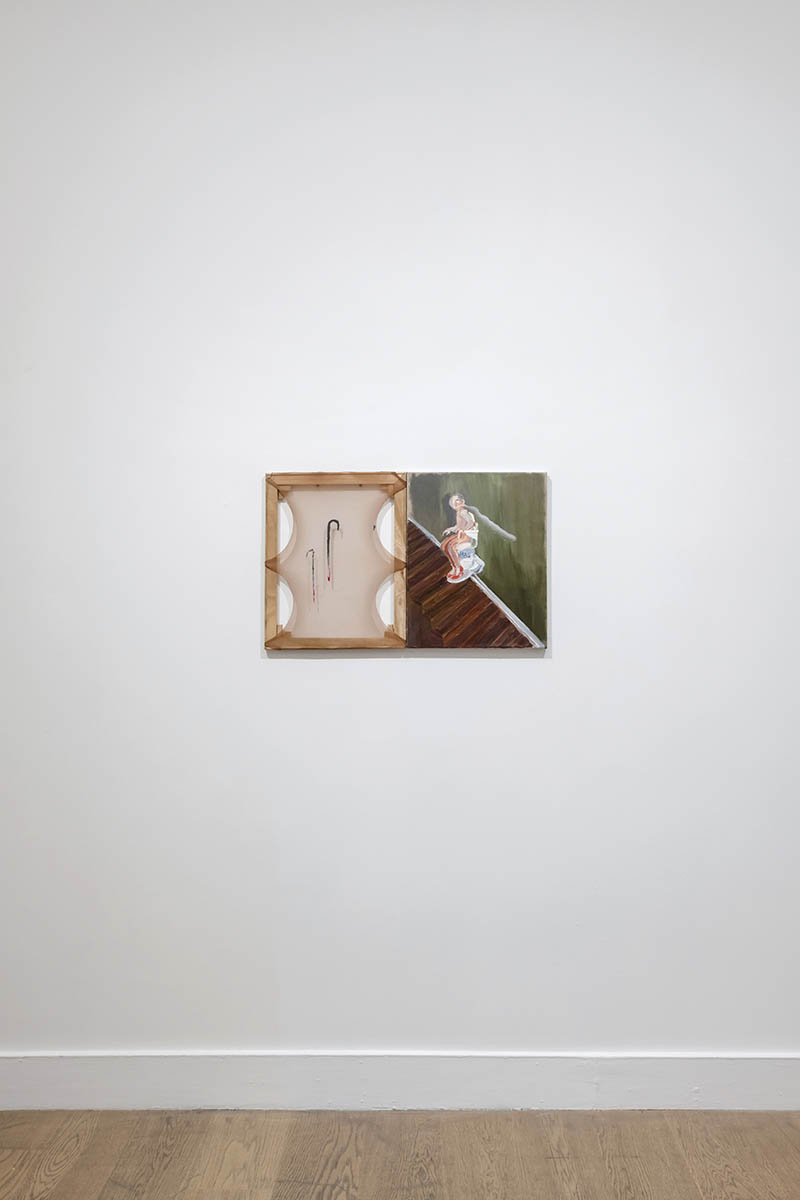
Exhibition view. Nazım Ünal Yılmaz – Always Forward 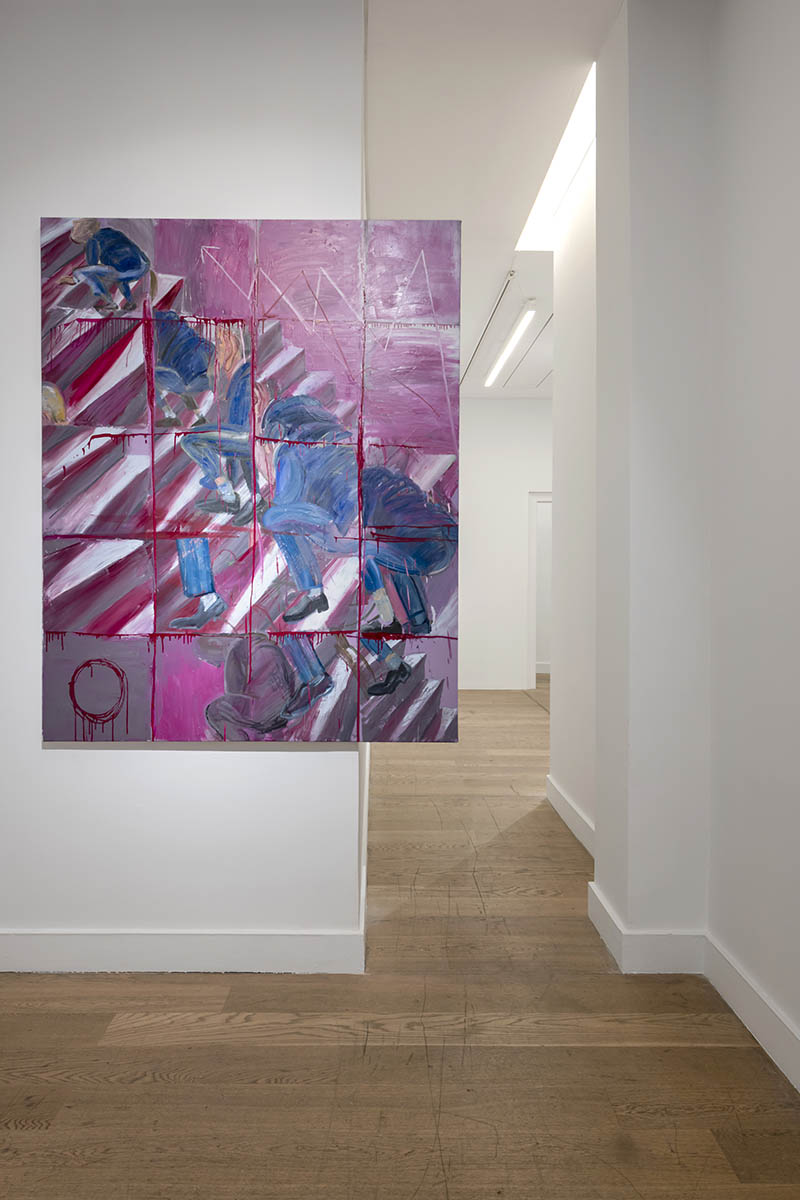
Exhibition view. Nazım Ünal Yılmaz – Always Forward 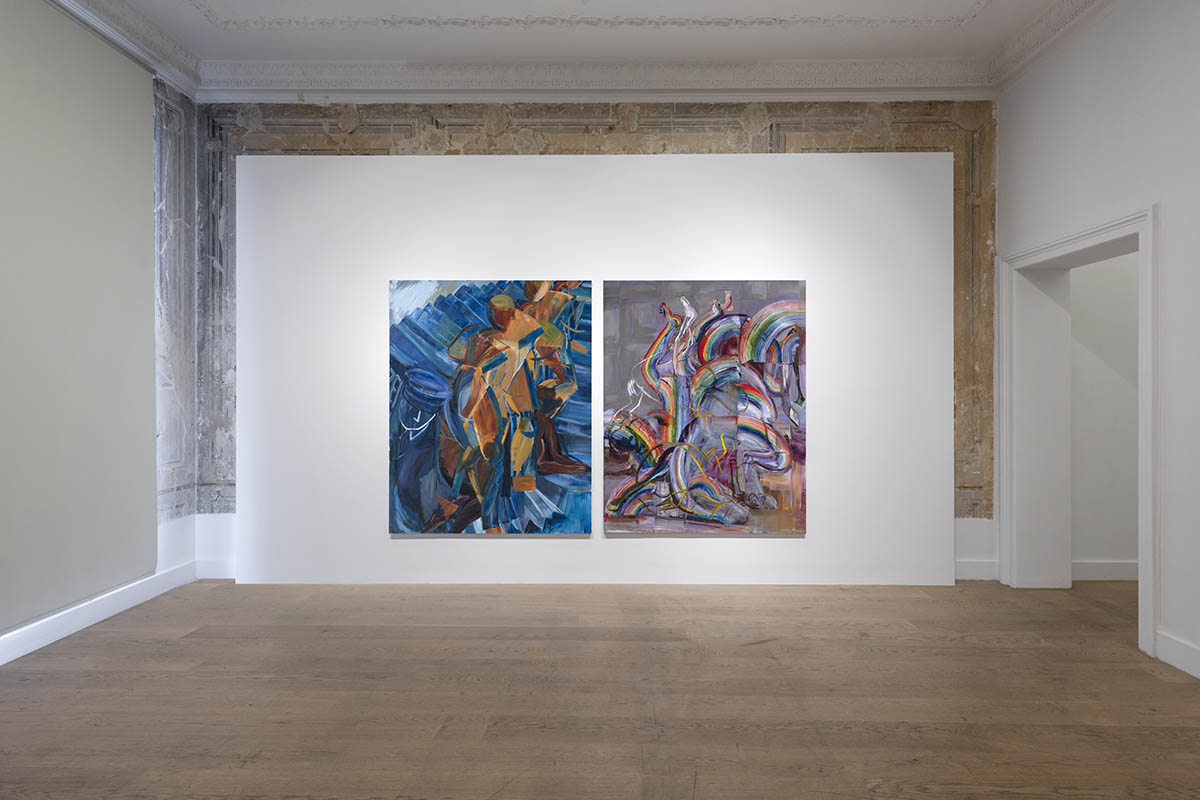
Exhibition view. Nazım Ünal Yılmaz – Always Forward
Another story of the above-mentioned abundance of exposure can be seen in the painting titled „Graphic“. Here, Yılmaz hits the audience in the face with a tipsy genuineness on the steps of career and wealth that we go up and down between the lower and higher levels, depicting a collective portrait of ourselves, even though we cannot distinguish the faces. Yılmaz maintains a sadistic and masochistic impression of the hypocrisy of capitalism, which he diagnoses with bipolar disorder. Choosing to free the painting from itself and to be both the defendant and pursuer of truth, with the images that he „divides“ with what looks like transparent calendar leaves in his paintings, the artist, on this occasion, approaches the tension between drawing and painting equally, on the same surface. Yılmaz works on his own, but with a historical consciousness, faithfully, as the masters of the Renaissance and contemporary peinture did in their artistic laboratories where they sought original imagery.
Nazım Ünal Yılmaz’s composition in his painting „Police and the Avant-garde'“also contains precious references to the masters whose souls he has summoned. Testing the spectator’s perception of time, space, belonging and urgency with its dizzying effect, the painter, with this makeshift time machine made up of a scrapyard of possibilities, seems to leave us calling from a metaphysical stairway similar to the Cubist avant-garde Pablo Picasso’s „Les Demoiselles d’Avignon“, dated 1907. As the Hitchcock-flavored, „dizzy“, vertigo-inducing work titled „Police and the Avant-Garde‘ title evokes, Yılmaz’s works allude to the official plastic strips that crime scene investigation teams use for „detaining“ time and space. Similar to the act of collecting the traces that the victims the suspects leave behind, it contains both a funny and frightening, sleuthing and imaginary flavour of bureaucracy.
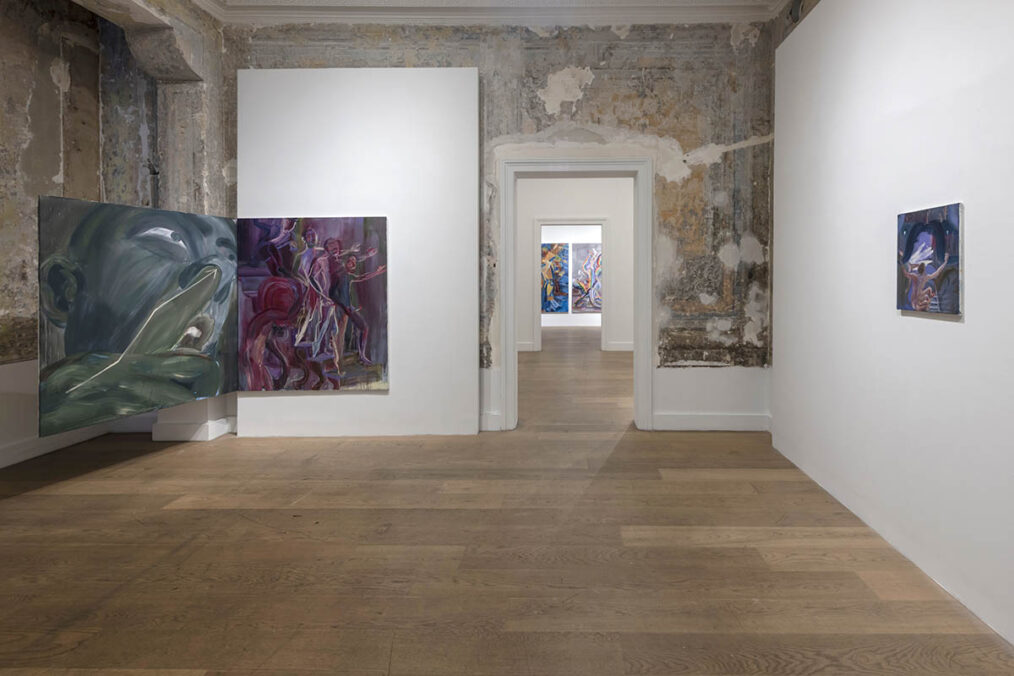
Exhibition view. Nazım Ünal Yılmaz – Always Forward 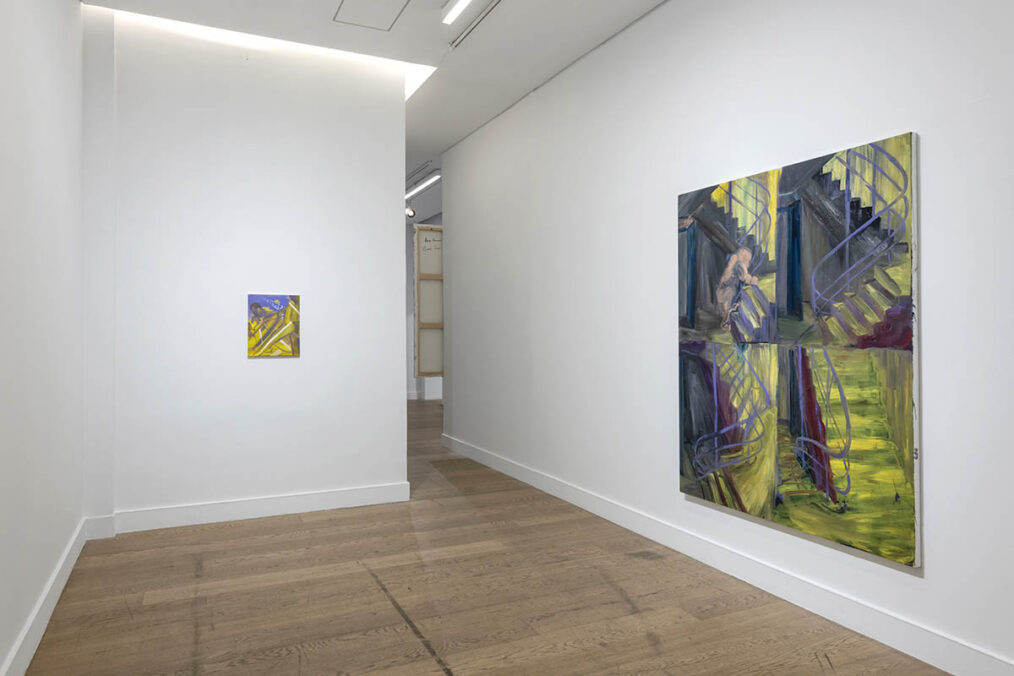
Exhibition view. Nazım Ünal Yılmaz – Always Forward
In the painting titled „Passage“, exhibited with its surreal and expressionistic presence, the mystery expected from the artist continues to reveal itself. Bringing forth the complicity between the pictured and the viewer once again, this work manages to compare the colours of fairy tales, the haunting of nightmares, the richness of dreams and the coolness of truth on the same surface. Yılmaz also problematizes the time factor kneaded by this tedious sincerity in his work titled „Men Who Are No More His Mother ́s Son“. Including in the composition an actual clock mechanism, the painter also brings into discussion the power relations between people from different generations, through the people he portrays, young and old, large and small, at a time that will suspend in thin air, and will fall behind in the face of other values and situations.
The serigraphic „big brother“ effect created by the artist by duplicating the canvas within itself creates an advantageous situation in terms of whether the „creatures“ produced by the imagination he proposes will reappear before the audience. With „The Monster Climbing the Stairs“, Yılmaz now offers a unique contact, a chance to get to know, which he keeps open to people of all kinds, from everywhere, who are prejudiced, impatient, lacking empathy and suffering from sensory deficiencies, whether in daily life, in the media or in their dreams.
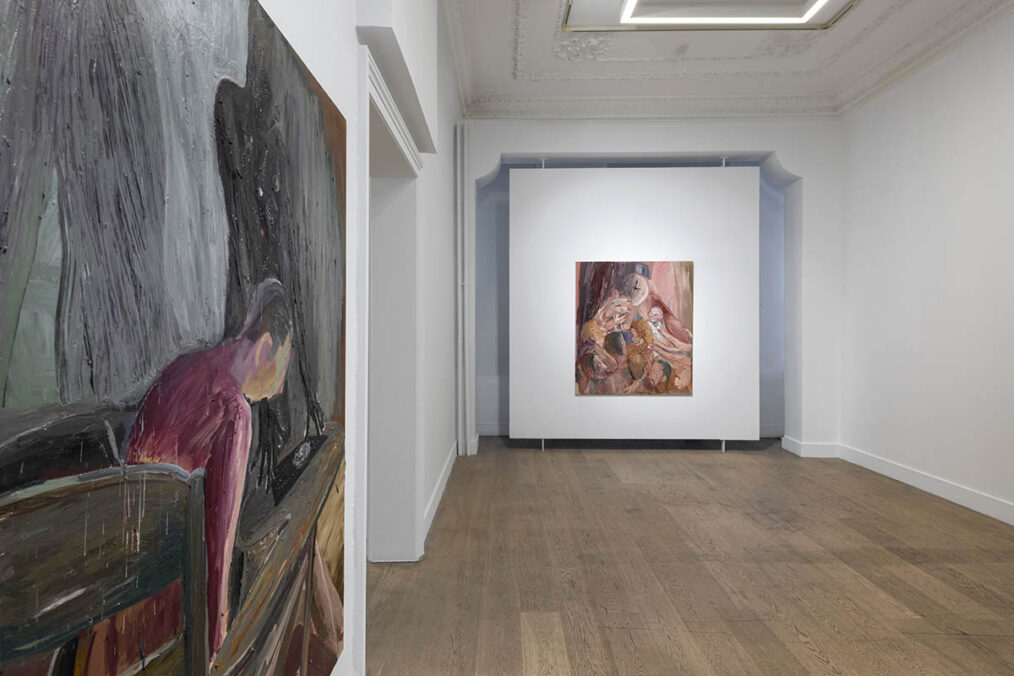
The diptych painting titled „Always Forward (Self-portrait as a pothead, wanker and a painter)“, a gigantic double wall composition, clearly represents the same gaze and the same questions both inside and outside. With his self-portrait, Yılmaz investigates where honesty should begin and end in depiction, according to which values the of art market determines its index, in this „cabaret“-like staging, a mise-en-scene that exposes itself to the audience.
These mental, formal and emotional clefts are similarly given equal representations in the painting titled „Study“. In front of a reflective surface, an unidentified entity with its deep dark attractiveness accompanies the painter and guides him on internal and external „space“. This interesting artwork which attempts to depict the painter in an ‚ecstatic‘ state while in contact with his inspiration, draws attention to what he tells rather than the way he tells it.
The artist’s uncompromising attitude of not being indifferent to the imagination’s demand for unconditional freedom, and allowing that the painting is not obliged to provide a service, is emphasised with absurd but sincere compositions such as „Atlas“, which carry autobiographical references.
Nazım Ünal Yılmaz keeps an anti-social distance with the greedy heirs of a history that is skeptical of going „Always Forward“, in favor of the nature of the imagination. This straightforward attitude, which goes against life and death, raises the chance of immortality with every new gaze that is directed towards the artworks. As the exhibition argues, this is related to our ability to accept every element we may interact with in art, in life and in the world, in all aspects, and to coexist accordingly, rather than going ‚always forward‘ in a frenzy.
Exhibition: Nazım Ünal Yılmaz – Always Forward
Exhibition duration: 27.10 – 17.12.2022
Address and contact:
GALERIST
Meşrutiyet Cad. No.67/1 Beyoğlu, Istanbul, Turkey
www.galerist.com.tr
Translation: Ecem Ümitli, Redaction: Murat Günes




